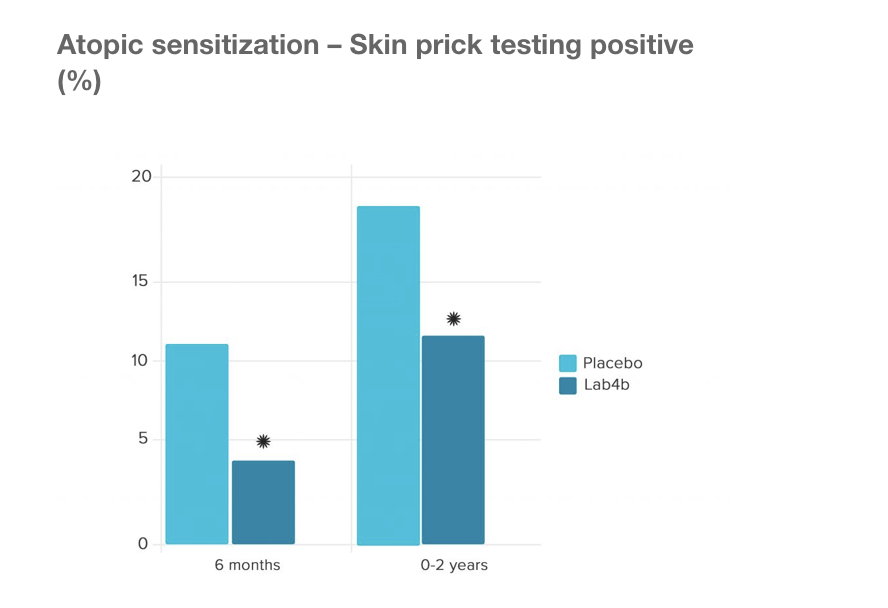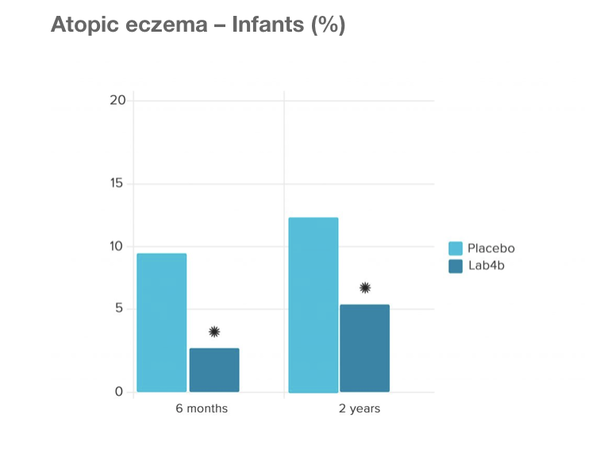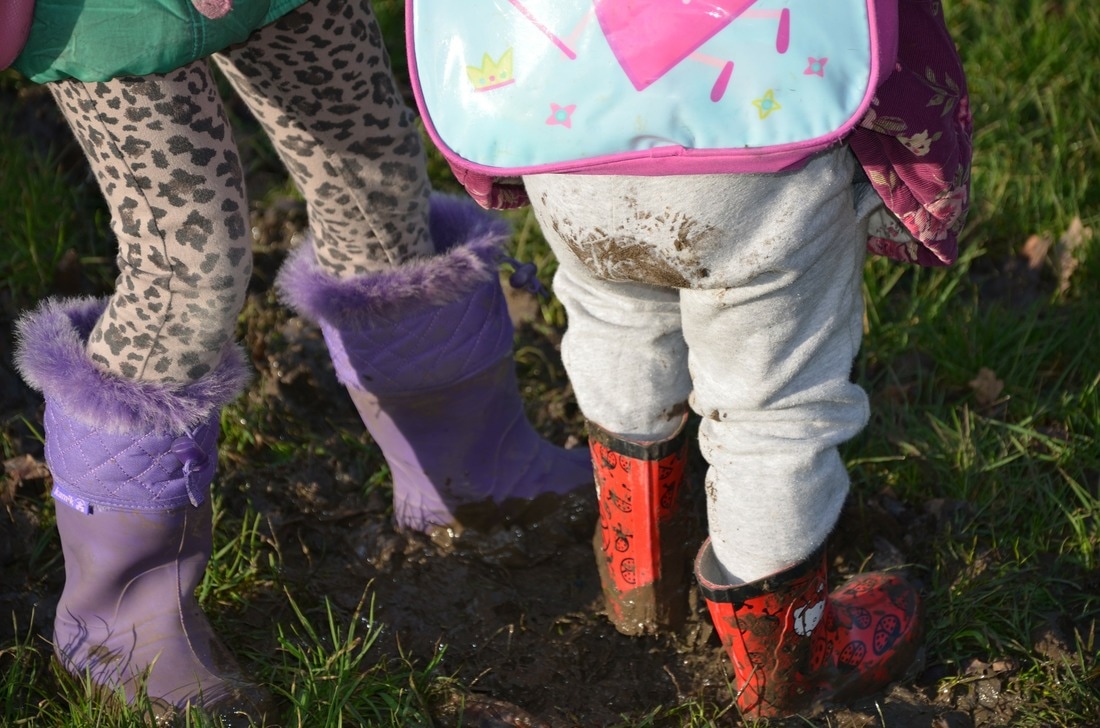|
Having spent over 5 years working with babies (and being a Mum myself!) I've seen a lot of colicky wee ones. Trapped wind can contribute to colic and reflux so making sure they get their burps up can make a huge difference in making them more comfortable. Sometime babies can be really difficult to burp so I thought I would share my favourite techniques. Often rotating through them can be really helpful when baby just won't burp!
0 Comments
Have you been told that your baby has reflux? Are you trying to get your head around what that means and what to do next? I'm here to help.
"Don't you just love New York in the fall, it makes me wanna buy school supplies" You've got mail.
Starting the new school year can be an exciting time. Buying new stationary, new uniforms and going into a new class with a new teacher can make it an unsettling but exciting time of change for children. But, as every mum and teacher knows, those first few weeks back always bring an explosion of bugs, and children who are immune compromised can become easy prey for some of these viral attacks. Making some diet and lifestyle changes can help boost your child's immunity and make a real difference to their overall health and wellbeing. Here are our top tips for a healthy school year. For more information in some of the common childhood ailments such as eczema have a look at our comprehensive blog here. Following the steps recommended below will support children suffering from a range of immune system challenges including asthma. More information on nutritional therapy for children found here Optimise Vitamin D Vitamin D is an essential vitamin which is essential for maintaining healthy levels of calcium in the blood. Vitamin D also plays an essential role in immune system health and cell growth. The main source of Vitamin D is from exposure to natural sunlight from the sun. However, from October to March the rays of the sun in the UK are not strong enough to enable our bodies to make Vitamin D. As a result, it is now a government recommendation that everyone should supplement with Vitamin D from October to March each year. Recommended dosages for children vary according to body weight. Look after Gut Health It is estimated that between 70%-80% of our immune system is located in our gut which means that what we feed our gut bacteria can impact our immune health. Prebiotics such as garlic, leeks and asparagus feed the friendly bacteria in our guts so consuming these on a regular basis can benefit gut health. Probiotics have also been shown in clinical trials to have a beneficial impact on gut and immune health. Optibac and Proven both have good ranges for children. ProVen Fit for School was used in the ProChild study, which took place over six months and those children taking Fit for School saw a 30% reduction in absenteeism from school due to coughs, colds and other upper respiratory tract infections (URTIs). The study also found that the duration of coughs and colds was halved in the children taking Fit for School and visits to the doctor and consequently prescription for antibiotics was reduced by 43%. This probiotic is suitable for children aged 4-16. Consume Omega 3 Omega 3 is great for our brains and helping us focus. Omega 3's also reduce inflammation and prevent attacks by toxins or pathogens. Food sources include oily fish, eggs, walnuts, flax, chia seeds and grass fed meat. If you're concerned that your child won't eat many of the foods which contain Omega 3, you could supplement with a good source of omega 3 such as Eskimo 3 Bright Kids Jelly Splats. Eat a Rainbow Eating a wide variety of colourful fruits and vegetables ensures we get a combination of vitamins, minerals and antioxidants to support the immune system. If you're concerned about any nutritional gaps, BetterYou have designed a handy multi-vitamin spray for children with a blend of 14 essential nutrients. The robust multi-nutrient formulation contains the full spectrum of B vitamins, including folate, combined with vitamins A, C, D, K, selenium and iodine. Sleep Sleep is when our bodies rest and restore. It is therefore essential for optimal immune health. Aiming for at least 10 hours sleep for little ones is a great way to ensure they get the rest they need to grow and thrive. Avoid electronics and blue light effect from TV/ computer etc at night and ensure a good winding down routine of baths and stories. Relaxation music can be helpful for us all and some children benefit from white noise. Essential oils are ideal to diffuse in the bedroom and can aid sleep and relaxation. Talk to us about appropriate essential oils and other supports such as magnesium cream which can be helpful depending on age of the child. We hope you all have a happy and healthy school year! If you would like to know more about nutritional therapy for children, you can find more information on our children's nutritional therapy page or drop us an email to [email protected]. We also offer call backs too if you follow this link and one of the team will give you a call to discuss your needs. To order any of the above products mentioned just email [email protected] and we will send you a link to order the correct items. Eczema or atopic dermatitis is a chronic skin condition often causing red itchy inflamed skin which can range in severity from mild to severe. According to statistics around 15 million people in the UK live with this condition and in 2015 GP’s in England wrote around 27 million prescriptions for various topical agents costing around £169 million. If you are thinking to yourself that more and more people are suffering from this you’d be right in your assumption. An NHS funded study has shown that the numbers of cases have risen by 40 % in 4 years. What we do know about the condition is that it is an allergic condition with 80% of sufferers having raised IgE antibodies. Eczema patients have positive allergy tests and around two thirds have a family history. Many also suffer from other atopic conditions such as asthma and hay fever. The standard treatment protocols involve simply managing symptoms via emollients and sometimes steroids and if infection is triggered due to scratching, antibiotics. Allergens are also tested for although these tend to focus on only IgE mediated reactions. Other considerations…. Immune function We are back to finding our root cause. So first lets look at what’s going on in the immune system. The allergy antibody IgE is elevated in 80% of cases and this is activated by a type of white blood cell, a helper cell called TH2. Mast cells can release higher amounts of histamine leading to the itch that we associate with eczema. Then there’s the issue that around 90% of sufferers also have a predominance of the bacteria Staphylococcus aureus on the skin which their immune system is unable to kill. Often scratching can activate this infection and cause some potentially severe staph infections. So how do we prevent this vicious circle? Well we have to do everything we can from day one to promote our gut/immune function. In our immune system we have regularly T cells sometimes known as Treg, which are involved in immune suppression and immune tolerance. It’s known that an unhealthy gut can lead to a decrease in these important cells and therefore an imbalance in our TH1/TH2 cells with the TH2 cells being unregulated. Studies have indicated that the use of probiotics from birth can confer a reduction in TH2 dominance and symptoms of AD at 13 months old versus placebo. Breast feeding Studies have shown that breast feeding is associated with a reduced risk of eczema and other allergies. However there is a caveat here in that although breast milk may confer antibody protection, in at risk children it may also be necessary for the feeding mum herself to remove common allergens which may unwittingly be triggering the problem as these proteins pass through the milk. Common allergens being dairy, peanuts and eggs. That said, the advice is to introduce these common allergens while breast feeding at the 6 to 12 month stage and to then continue to breast feed for a further 6 months following this introduction. Older and formula fed children In older and formula fed children a study looking at triggers for eczema indicated that Peanuts eggs and milk have been shown to account for 80% of adverse reactions to foods in people living wth contact dermatitis. Other common triggers and are wheat, fish and soy. The hygiene hypothesis. Are we just too clean? Epidemiological studies, especially those looking at migration from one country to another indicate that we acquire the same immune disorders as soon as we move to another area so environmental factors are playing a huge role. Lifestyle changes have led to a decrease in infection in the industrialised world and this has been shown to be inversely correlated with increases in allergies and autoimmunity. Studies have also shown that exposure to animals or growing up on a farm confers protection from a young age as we are exposed to a greater variety of bacteria which leads to activation and modulation of innate and adaptive immune response. In one large Swiss study, nearly 14,000 children were surveyed between 2006 and 2007, with over 3,000 farming children and around 11,000 non-farming children. In this study, 38% of the non-farming children had allergies compared to 19% of the farming children. Digestive compromise Those living with allergies have commonly got some level of digestive compromise and dysfunction. Stomach acid which normally assists in the removal of infection and therefore has a protective role, can commonly become low and therefore play a role in weakening our immune system and make us more prone to infection. It also sets us up potentially for the leaky gut phenomenon which puts us at risk of further food sensitivities of the IgG variety (delayed reaction) and chronic inflammation. If you have intestinal permeability you may also be experiencing other health challenges e.g. fatigue, brain fog, headaches, depression, sinus, IBS, reflux, joint pain, and autoimmunity. This is also why I see many clients in clinic who may be coming along for help getting to the root of their eczema but who also have any number of the aforementioned symptoms. A lack of a very important nutrient zinc can ensue as a consequence of low stomach acid. This nutrient is essential for immune, gut, hormone and skin health. It affects appetite, smell and taste of food, so in children who have a narrowing of food choices and are no longer enjoying certain foods, zinc deficiency may be at the heart of this. It is also a particular problem in cases of acne in teenagers so look out for changes in eating and appetite in older children and test their zinc levels. This can be done with a very simple taste test which all the family can do. Adequate zinc is also required for healing the gut. Gut Flora and probiotics Because our immune system resides primarily in the gut we need to look at gut bacteria. We also need to weed out any trouble makers Interestingly yeast overgrowth is a common cause of eczema. It’s also a very common problem as the western diet of high sugar, refined carbs and low fibre sets up the perfect conditions for this to grow. In addition, yeast overgrowth can result from long term medication use e.g. antibiotics, steroids and the oral contraceptive pill. We therefore need to ‘weed and seed’ the gut, get the infections out and the good bacteria in to assist with immune balancing and symptom resolution. Risk factors for allergies in children This relates to those factors which influence the health of the micro biome from day one. In an ideal world we need to be focusing on the gut health of mum prior to a planned pregnancy as this is what baby inherits. Areas of concern are
The Swansea Study This was a large study by the University of Swansea Medical School with 454 mother/baby pairs who were given Lab4b probiotics containing Lactobacilli and Bifidobacteria both during the final month of pregnancy and the first 6 months of infancy to evaluate whether this would prevent allergy in children. The results showed that versus placebo, the probiotic groups did indeed confer a protective effect on prevention of eczema and also prevention of allergic reaction to common allergens including pollen, cows milk, eggs and dust mites. Prof. Steve Allen, concluded the following key message from the trial:‘Lactobacilli and Bifidobacteria administered to pregnant women and infants aged 0-6 months prevented atopic sensitization and atopic eczema. The babies given the Lab4b probiotics were 57% less likely to develop atopic eczema than those receiving the placebo. The babies given Lab4b were 44% less likely to develop allergic reaction to common allergens, including pollen, cow’s milk, egg and house dust mite. Stress
Stress is very much linked with gut/immune function and when we are stressed we are more likely to have a flare of these conditions so managing stress for young and old is a life long strategy for eczema management. Adaptogen herbs can be helpful as can mindfulness, meditation and essential oils such as lavender for relaxation. As those living with eczema have a tendency towards poor absorption due to gut compromise a common nutrient which we can find ourselves low in is magnesium and this is also because we actually use more of it when we are stressed. More tips here on how to maintain levels. Nutritional therapy/ Functional medicine approach for eczema The nutritional therapy approach involved recognition of all of the above factors and follows through with the following stages.
Further testing This can be done if required and in addition to either allergy or food intolerance testing we can offer stool testing to identify infection and imbalance and even cortisol testing if stress is a particular trigger. Supplements This really does depend on the individual. It depends on what else they may be presenting with, their individual root cause/s, what medications they are on etc. However core supplements to include are going to be probiotics to reinoculate the gut, omega 3 and vitamin D. We may also recommend supplements and diet change to support gut integrity and immune balancing as per above recommendations. More info on booking an appointment with us for adults and children here. Referenced Studies Burks AW, Williams LW, Mallory SB, et al. Peanut protein as a major cause of adverse food reaction in patients with atopic dermatitis. Allergy Proceedings 1989;10:265-269. Von Mutius E, Vercelli D. Farm living: effects on childhood asthma and allergy. Nat Rev Immunol. 2010;10:861–868. Allen SJ et al 2014. Probiotics in the prevention of eczema: a randomised controlled trial. Archives of Disease in Childhood 99(11): 1014–1019 Last week we covered Probiotics in Pregnancy and touched on how supplementing babies can help reduce the incidence of eczema and other allergies. But what about other common complaints in infancy? Can probiotics help there too? Let's look at some of the usual suspects: Colic is something that has troubled parents forever! The worst thing about colic is that we don't really know exactly what causes it. Having said that, anyone who has ever tried to comfort a colicy baby knows it's usually tummy trouble so trying a probiotic would make sense. A recent study now shows that introducing a probiotic has seen crying in infants fall by at least 50%. Another nightmare for new parents is reflux. (Not to be confused with 'happy pukers' it's totally normal for breastfed babies in particular to guzzle a little too much and then puke out the extra. It's part of their self regulation and why there is now a link between breastfeeding and reduced childhood obesity. If baby seems fine after they vomit you've probably got one of these!) Probiotics can be helpful here too. An Italian study has shown that probiotics can increase gastric emptying and therefore decrease the frequency of regurgitation. Constipation is also a common digestive problem in small children. Studies have shown that taking a probiotic can increase stool frequency and improve the consistency of stools. It has also been found to reduce the frequency of faecal incontinence and significantly reduce tummy pain. Severity and duration of boughts of diarrhoea have also been reduced by taking a probiotic. One finnish study found that the probiotics successfully colonized the gut and reduced the duration of watery diarrhoea usually associated with the rotavirus. In the ProChild study children were given either a placebo or Proven's Fit for School probiotic for six months. Children taking Fit for School had:
If you would like to know more or to discuss your probiotic needs with Beverley our registered Nutritional Therapist just pop into the shop: Nourishing Insights, 44 St Andrew Street, Aberdeen, AB25 1JA. References: A. Bird Schreck et al. (2016) Probiotics for the Treatment of Infantile Colic: A Systematic Review. Journal of Pharmacy Practice p1-9. F.Indrio et al. (2011) Lactobacillus reuteri accelerates gastric emptying and improves regurgitation in infants. European Journal of Clinical Investigation. 41(4) p 417-422. N. Bekkali et al. (2007) The role of a probiotics mixture in the treatment of childhood constipation: a pilot study. Nutrition Journal. 6(17) M. Tabbers et al. (2011) Is Bifidobacterium breve effective in the treatment of childhood constipation? Results from a pilot study. Nutrition Journal. 10(11) A.V. Shornikova et al (1997) Bacteriotherapy with Lactobacillus reuteri in rotavirus gastroenteritis. The Paediatric infectious disease Journal 16(12) p 1103-1107. I. Garaiova et al. (2015) Probiotics and vitamin C for the prevention of respiratory tract infections in children attending preschool: a randomised controlled pilot study. European Journal of Clinical Nutrition. 69 p.373-379. Last week we looked at the power of probiotics and the fact that we get our good bacteria from our mother when we are born. As the baby travels down the vaginal canal the baby is covered in secretions which contain their mother's flora. This is then swallowed by the baby and that bacteria colonizes their gut and forms the beginning of their immune system. This is why "seeding" (taking gauze soaked in this fluid and wiping it on the babies face) is becoming increasingly discussed as a way of getting that first colony into the baby after a C-section.
Think you don't need to take one? Let's look at some of the things that compromise gut flora. - Birth Control (Most women are on this prior to falling pregnant.) -Antibiotics (many women suffer with UTI's during pregnancy). -Antacids (how many women do you know who slept with rennies by the bed and spent the last trimester knocking back the gaviscon?) -Pesticides (Unless we eat an entirely organic diet, most of us are exposed to these through the diet). -Household Cleaning products (One word....Nesting!!) -The list goes on! Still not convinced? Well let's look at the benefits of taking probiotics for you and your baby both in vitro and beyond. A 2010 Scandinavian study showed that probiotics significantly reduced the risk of Gestational Diabetes and that coupled with proper nutritional support reduced the risk of foetal overgrowth associated with it. This of course has the knock on effect of reducing the need for medical intervention during delivery. A further study has shown that in addition to reducing hypertension (high blood pressure) and inflammation, intake of probiotics also significantly reduces the risk of pre-eclampsia and spontaneous preterm delivery. Those who took probiotics daily had the lowest risk factors when compared with those who consumed them only weekly or monthly. Taking probiotics prior to giving birth and then giving them to the infant for the following 6 months has been shown to reduce the incidence of eczema. The Swansea Baby Trial supported these results. Babies given Lab4b (the probiotic used in the Proven range) were 57% less likely to develop allergic eczema than those receiving the dummy product. It also showed that children whose mothers had probiotics in the last trimester along with taking them for the following 6 months were 44% less likely to develop allergic reaction to the common allergens including pollen, cow’s milk, egg, and house dust mite. The Swansea study also concluded that probiotics are safe and that taking them had no adverse effects to mum or baby. A Study from MIT has also showed that supplementation with probiotics increases the production of love hormone oxytocin. This in turn leads to increased immunity with the infant exhibiting robust skin and mucosae, rapid wound healing and resistance to infection. If you would like more information or to find out which probiotic is the right one for you pop in and see us. Nourishing Insights, 44 St Andrew Street, Aberdeen, AB25 1JA. References: https://www.umcg.nl/EN/corporate/News/Paginas/Antacid-use-dramatically-reduces-healthy-gut-microbial-flora.aspx http://lab4probiotics.co.uk/the-swansea-safety-in-newborns-study/index.html http://lab4probiotics.co.uk/the-swansea-baby-trial/index.html R.Luoto et al. (2010) Impact of maternal probiotic-supplemented dietary counselling on pregnancy outcome and prenatal and postnatal growth: a double-blind, placebo-controlled study. British Journal of Nutrition. 103 p. 1792-1799. A. Brantsaeter et al. (2011) Intake of Probiotic Food and Risk of Preeclampsia in Primiparous Women: The Norwegian Mother and Child Cohort Study. American Journal of Epidemiology. 174 (7) p.807-815 K. Kukkonen et al. (2007) Probiotics and prebiotic galacto-oligosaccharides in the prevention of allergic diseases: a randomized, double-blind, placebo-controlled trial. Journal of Allergy and Clinical Immunology. 119(1) 192-198. S.E. Erdman and T.Poutahidis. (2014) Probiotic ‘glow of health’: it’s more than skin deep. Beneficial Microbes. 5(2) p. 109-119. M.Murray &J.Pizzorno (2012) The Encyclopedia of Natural Medicine. Atria. New York.  Orginally from North America, this particular echinacea plant was photographed in the beautiful walled garden in Castle Fraser, Aberdeenshire, Scotland. Echinacea has a pink delicate daisy like flower and interestingly all parts of the plant have been used to make herbal medicine. Prior to the advent of antibiotics, echinacea was seen as an effective antiviral and immune stimulant and it has an interesting history being used for everything from coughs and sore throats to eye infections, snakebites and venereal disease. Today, echinacea is still popular and for many it is seen as a 'must have' for their winter medicine cabinet. As far as the scientific community is concerned, echinacae is one of the most well studied herbs out there and even some family doctors recommend it for its prophylactic benefits! ITV's 'This Morning Dr Chris Steele has said .. There is research showing that Echinacea does reduce the duration and severity of the symptoms of the common cold and influenza - as do other herbal remedies, such as Pelargonium. The difference between the two is that Pelargonium is suitable for adults and children (aged 6+) with asthma and other vulnerable groups, whereas Echinacea is not recommended if you have asthma. Dr. Chris Steele A 2014 Cochrane review of 24 trials found a 'consistently positive' benefit from taking echinacea as a preventative measure. Another meta-analysis published in the Journal of Advances in Therapy 2015, demonstrated a significant benefit from taking echinacea as a prevention for repeated respiratory infections in 'at risk' groups among children, adults and older adults and concluded that... Evidence indicates that echinacea potently lowers the risk of recurrent respiratory infections and complications thereof. Immune modulatory, antiviral, and anti-inflammatory effects might contribute to the observed clinical benefits, which appear strongest in susceptible individuals. Schapowal, A et al. As a family we first started taking echinacea 26 years ago and we have recommended it so many times over the years. It's definitely something we wouldn't be without! If you are finding that your immune system is a bit compromised generally and you are prone to infections, there may be other factors to consider e.g. making sure you have adequate amounts of Vitamin C, Zinc and also considering stress levels as stress can leave us compromised more than we realise. For this reason adaptogen herbs can be invaluable as they not only modulate cortisol but also immune function. Vitamin D is another important nutrient for immune health and it's typically at the end of the winter that our levels are lowest making us a bit more vulnerable. If you would like to check your vitamin D levels and optimise your dose, we offer a simple pin prick test which goes off to an NHS lab so do get in touch if you'd like to take advantage of that and get your levels optimised. Because our immune systems are located primarily in the gut, we also need to be thinking about probiotics and topping up on our good bacteria to ensure a more robust immune system. To read more on the power of probiotics check out our article here Of course, taking supplements is not the only thing to consider if you have a history of immune problems. The best way to do this would be to book an appointment with a Nutritional Therapist who will take a lengthy case history and may recommend further testing to get to the bottom of your particular health problems. It could be that both diet and lifestyle choices could unwittingly be contributing towards repeated health challenges. It is hugely rewarding both as practitioner and client to uncover a few of those obstacles that may be hiding in the shadows if we did but know! Natural forces within us are the true healers of disease. Hippocrates About Baby Massage Massage is a fantastic way to help with your baby's development, both physically and psychologically. Benefits for the Baby: Bonding: Baby massage provides a quality, pleasure-filled time between parent and infant. Through massage parents will pick up on their baby’s cues as they react to your touch and begin to communicate. Colic and Constipation: By helping with digestion and the movement of gas, colic and constipation can be lessened with massage. Restlessness: As your baby becomes used to massage and what it means they can often be soothed and comforted. Some will even sleep after a massage! Relieve pain or discomfort: Massage can cause a rise in endorphins helping to sooth babies and it can even help with teething too! Benefits for the Parents: Baby Massage is a highly practical and empowering skill that parents can use from day one. Bonding: In the West, we have somewhat lost our way with touch. Learning Baby Massage can be a gentle way to incorporate touch into your relationship with your baby. Communication: Touch is one of the first ways we communicate with each other. Before your baby can speak they can still react to your eye contact, voice and your touch during massage which you can pick up on. Touch is an essential form of communication for the health and development of any baby. Confidence: Massage is great way to build confidence as a new parent as you learn a practical skill that can be used to calm and sooth your baby during the trying times (growing and teething) that they go through. Fathers: Often Dads can feel a little left out when the baby arrives but massage is a great way for them to provide nurturing emotional care to their baby. It can also give mum some much needed time-out! About the course The course takes place for one hour every week for six weeks, teaching in small groups of around 6-8. It’s very informal and there is plenty of time to get settled, relax and for your babies to get ready for a massage. Each week you will learn a new set of strokes to use on your baby. In week one we start by massaging the legs and gradually work up the body. Each week we go over what was done the week before to gradually build up the routine and allow your baby to get used to being massaged for longer periods at a time. By the end of the six weeks (with some practice at home!) you will have mastered a full body routine and a routine to help with colic. The 6 week course costs £60 and includes massage booklet and a bottle of oil. Classes can be given on a one to one basis over three weeks, get in touch for more information. Classes can also be given prenatally to prepare you for your new arrival. If you would like more information about our prenatal one to one sessions please call me on 01224 969637 or email [email protected] You can book online for one of our courses here. |
Amazon Associates DisclosureNourishing Insights is a participant in the Amazon EU Associates Programme, an affiliate advertising programme designed to provide a means for sites to earn advertising fees by advertising and linking to Amazon.co.uk. Archives
December 2023
|
WHAT OUR CLIENTS ARE SAYING“I did Nutritional Therapy with Beverley and it was life changing. I highly recommend it!” Allison Blakely (Glasgow)
|
Contact Us |











